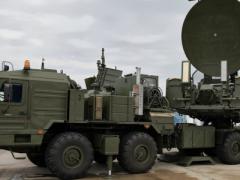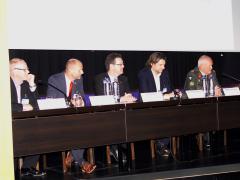Search Results for "" cyber ""
Not finding what you’re looking for?
10 of 3841 Results
Clearing Up the Whole CIA Question
Confidentiality, Integrity and Availability make up the triad of Information Assurance, backed up by Authentication and Non-Repudiation. No matter how it’s explained, it’s something we all need to understand.
Federal, Commercial Worlds Contribute to Cyberdefense
U.S. government agencies and private-sector firms must improve communications to better protect vital national infrastructure. Besides the ongoing need to shield both classified and unclassified computer network assets, an industry expert maintains that a vigorous defense has a deeper psychological impact, implying that systems can be trusted.
AI Will Affect Every Warfighting Function in Indo-Pacific Command
But it should be applied carefully.
Image
Russian Electronic Warfare Targets NATO Assets
The alliance’s technological core could be a sitting duck.
Image

Joint Force Takes On the New Ice Age
The United States and its allies can't afford to give Russia the cold shoulder.
Image

Sponsored: How to Harness Best Practices for IT Modernization
Military and civilian agencies can boost capabilities, expand resources and enhance security in effortless ways.
Image

The Air Force’s Work To Create the Information Warfare Operations Center Advances
Putting a suite of sophisticated information warfare into the operations of all its major commands will help the service position itself against its adversaries.
Image

Three Steps for AI Success
Artificial intelligence requires infrastructure, collaboration and training.
Image

Changing the Game in Security Is a Key Role for C4ISR
AFCEA Europe’s second-largest flagship event, TechNet Europe, featured the latest topics in cybersecurity and command, control, communications, computers, intelligence, surveillance and reconnaissance (C4ISR).
Image

